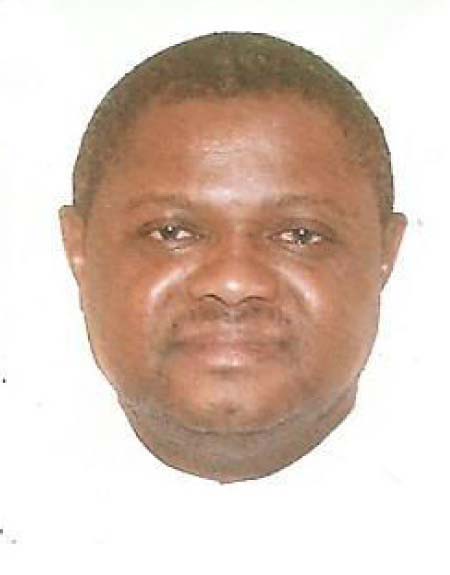
The Canon law strictly states in Canon 1024, a priest is a baptized man who validly receive Sacred Ordination.
The New Jerusalem Bible theological glossary refers to the etymological definition of priest as elder.It referred to ancient – Israel where any head of family who could offer sacrifice is called a priest.Despite this, there were also priests of various sanctuaries through out Israel like the Levites and Aaron the priest (Heb. 5:4-7) who were specially chosen and anointed.
From the foregoing, the term priest or priesthood refers to a person or the institution of priests with the intermediary role of relating between God an humankind.This intermediary role of the priest can be seen in various ways like offering prayers, the Eucharist, preaching, healing and leading people to God.Apart from this specific ministerial priesthood also there exists the common priesthood or priesthood of all the baptized.The Second Vatican Council and the post-concilliar document of Christi Fidelis Laici (Christ’s lay faithful) emphasizes that by virtue of baptism, every Christian has an active role to play in the life and work of the church.Theirs is a vocation to which they are all called to fulfill in the life of the church.
The Oxford Advanced learner’s dictionary defines the term, challenge as a new or difficult task that tests somebody’s ability and skill but in an interesting manner.Here the challenge need not be permanent because its meant to be overcome so that the greater good of the objective can be met.
Lastly the phrase priestly ministry in the Gambia relates to the work or services that priests render in the locality of the West African State called, The Gambia.The Gambia is a nation comprised of people of diverse faiths, dialects, traditions and cultures who co-exist peacefully and amicably.It is predominantly Muslim populated and Christians are the minority.Despite this population imbalance people of all faiths respect and are tolerant to each others beliefs.It is in such environment that the ministry of priests in the Catholic Church exists.
III.REFERENCES OF THE PRIESTHOOD IN THE BIBLE:
The Catholic priesthood is a sharing in the priesthood of Christ which has to be understood against the background of the Old Testament.In ancient Israel, priestly tasks were carried out by the father of the family or tribal leader.Gradually there emerged an office of priesthood with some men devoting their time to it.This is what is known in the category of priests of the tribe of Levi.
The Old Testament priest was a man set apart for sacred duties.He was endowed with a special holiness because he served God and his people in a special way.His duties included discerning God’s will, teaching God’s law and offering sacrifice.All these functions have in common the role of being an intermediary between God and the people.The priest was a servant of the unity between God and the people, and this is an idea central to the ordained priest today.The fact that the whole people was a royal priesthood, a kingdom of priests (Ex. 19:6) did not conflict with the presence of a consecrated priesthood in its midst.
In the New Testament, Jesus was taken to be a priest but he was not a Jewish priest.The early Christians understood him to be the priest replacing the priests and sacrifices of the Old Testament.In the letter to the Hebrews a lot is written about this.Jesus is seen as the merciful and faithful High priest (Heb. 2:17), his priesthood is unique and once and for all (Heb. 10:12-14) but also held permanently by him and continuing forever (Heb. 7:24).Whereas the Jewish High Priest went into the Holy of Holies, the temple’s inner sanctuary, once a year with a blood offering for the sin of the people (Heb. 9:6-7), Christ the High Priest has entered heaven itself, the dwelling place of God, on our behalf; he has offered his own blood to secure our redemption.
The New Testament also affirms the basic equality among believers.In the words of St. Paul, “there is neither Jew nor Gentile, there is neither slave nor free, there is neither male nor female, for you are all one in Christ Jesus (Gal. 3:28).Baptism is the basis for this unity and equality.There are no first or second class citizens in the Church but rather a single family of God’s children.St. Peter also says that we are chosen race, a royal priesthood a holy nation, God’s own people set apart to declare to others the wonderful works of God ( 1 Peter 2:9).As with the Old Testament people, however the fact that all Christians form a royal priesthood does not exclude the idea of a specific priesthood serving Christ in the Church.
This specific priesthood appears in the
New Testament with other ministries such apostles, prophets, evangelists,
pastors and teachers mentioned in (Eph. 4:11-12).This ministry in itself exercised in the name
of Christ leads and unites communities that had been founded by the apostles.St. Peter refers to it in (1 Peter 2:25) as
the ministry of shepherd of souls (episcopos).By AD 100 this unique leadership was common and was later on shared with
other leaders called presbyters who shared in the same work of the episcopos.Their task was to proclaim the gospel to the
world at large and oversee the life of the church, building up the body of
Christ.

